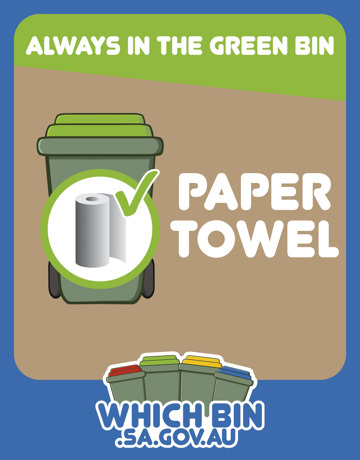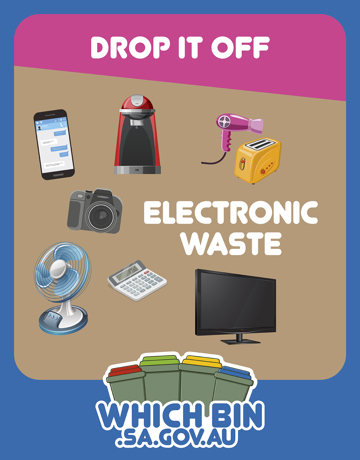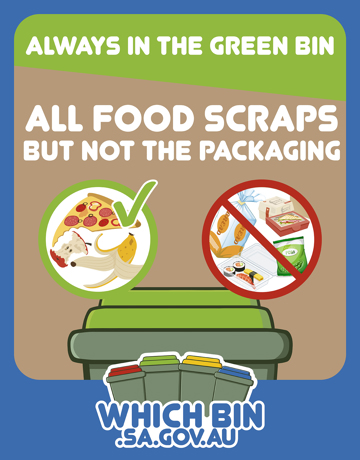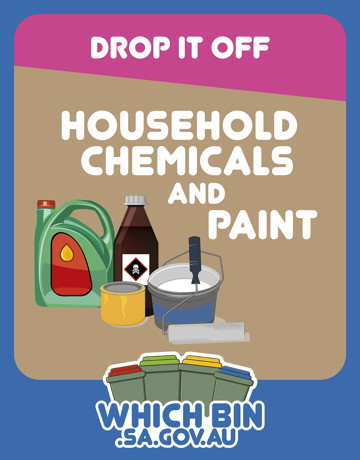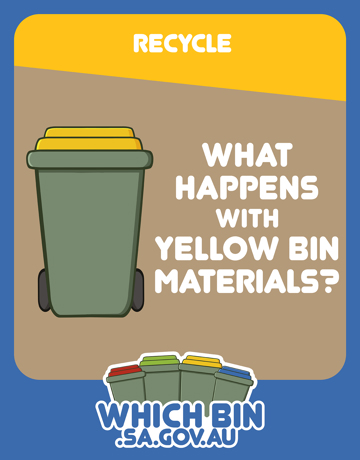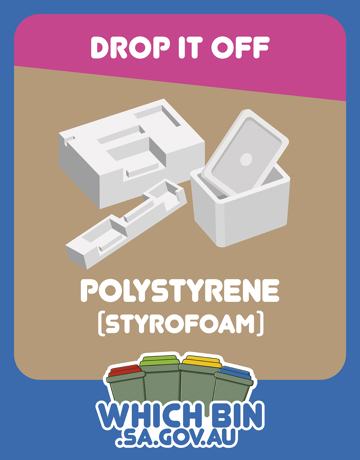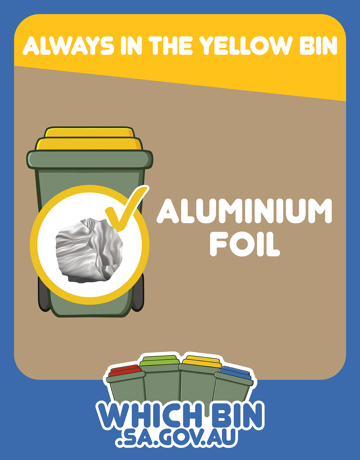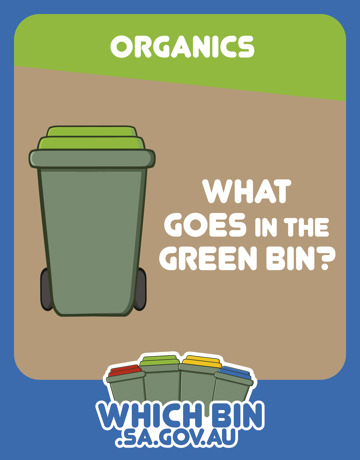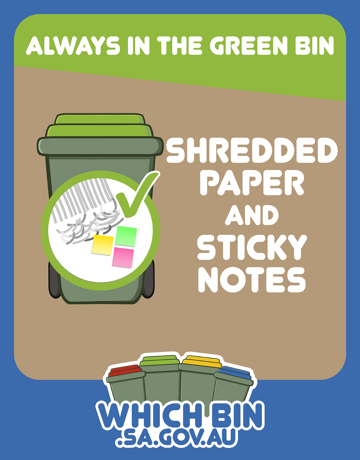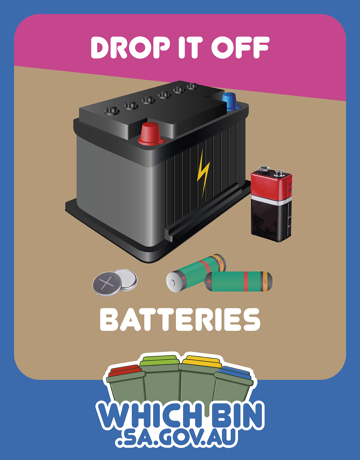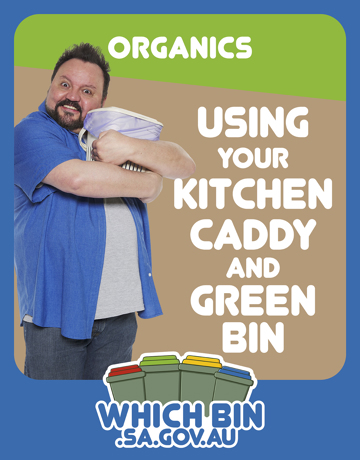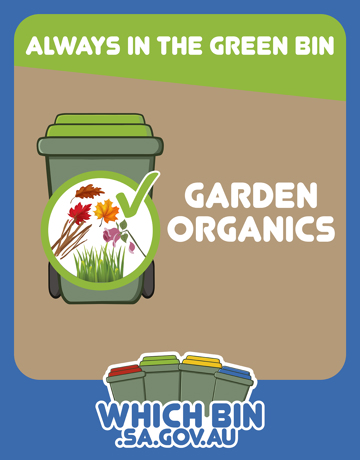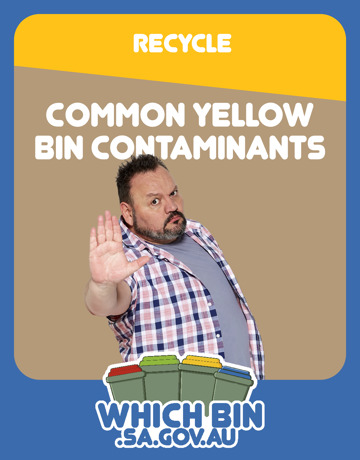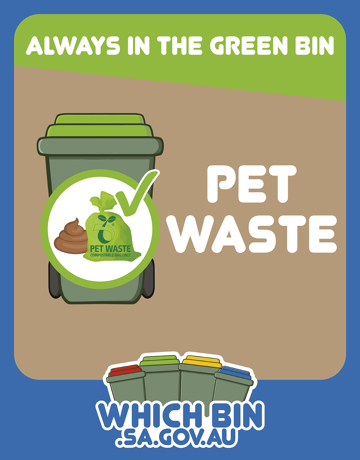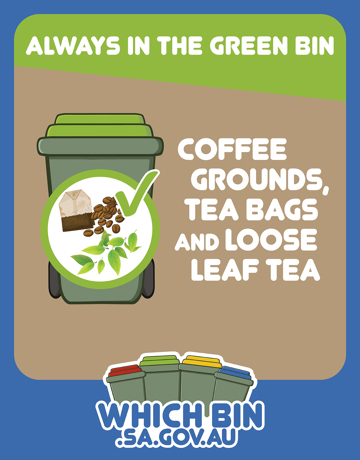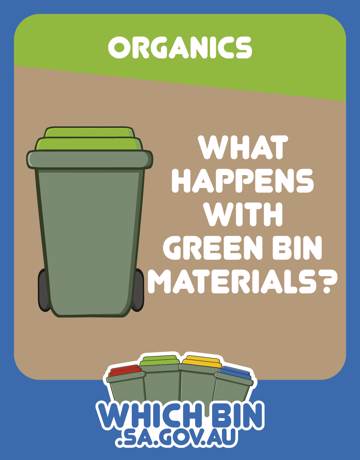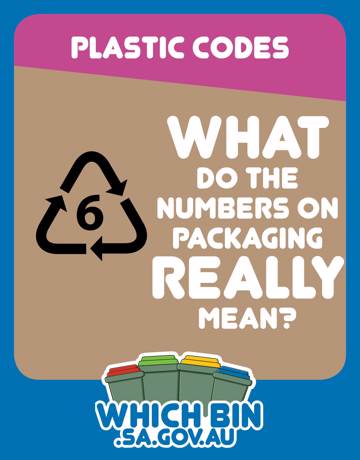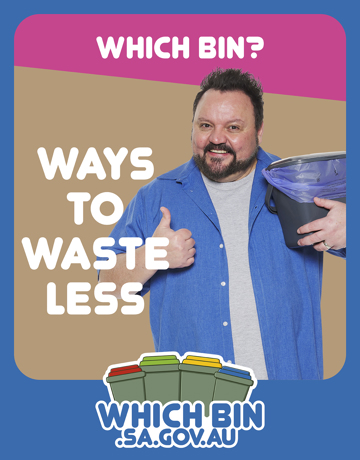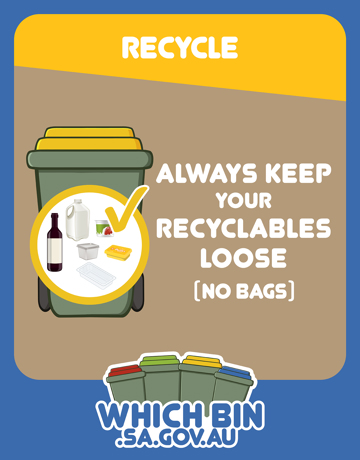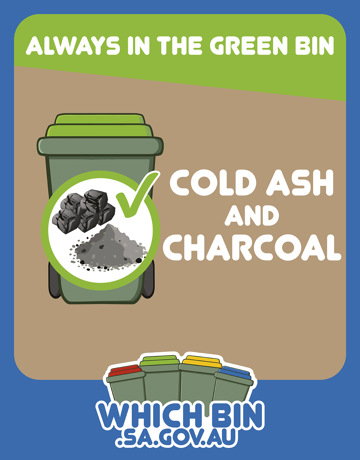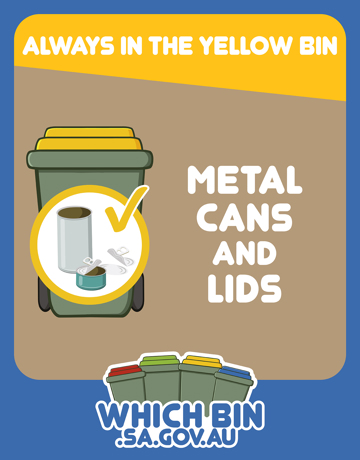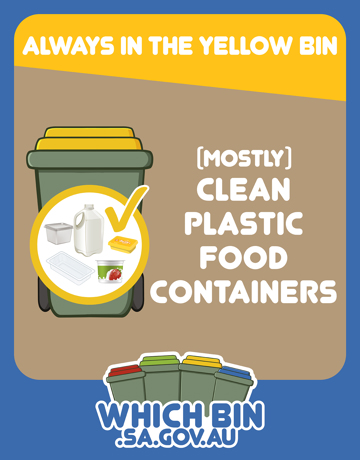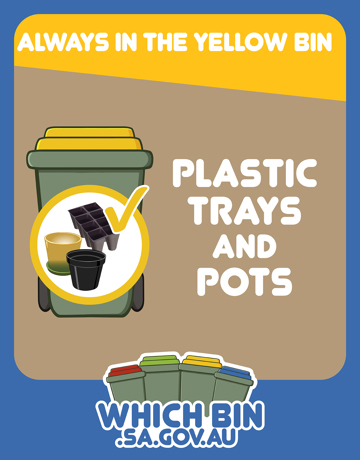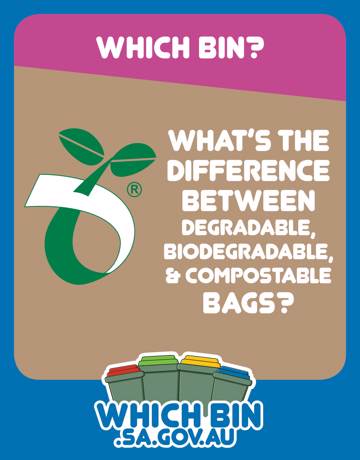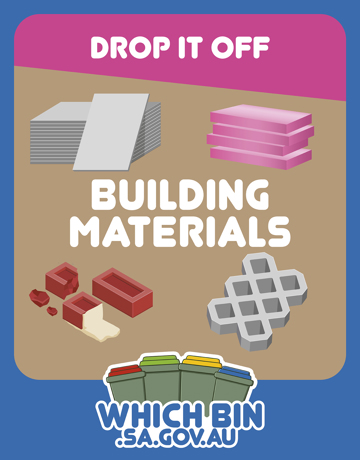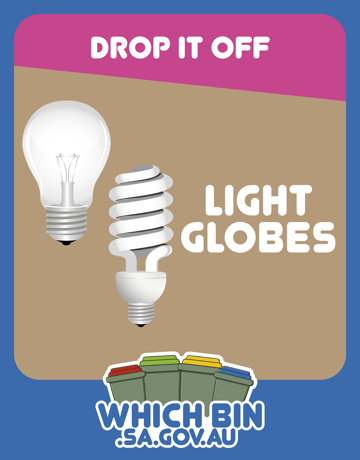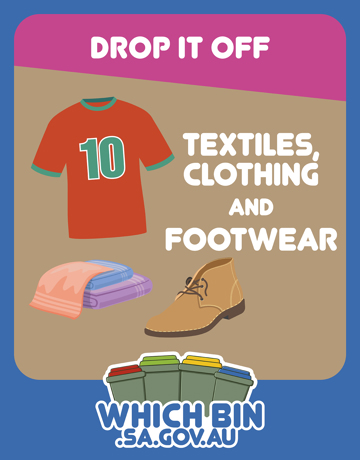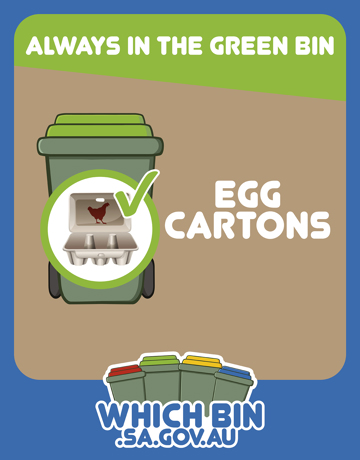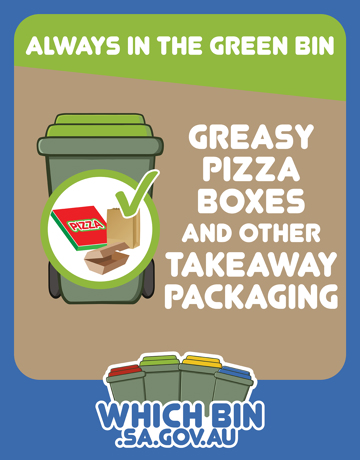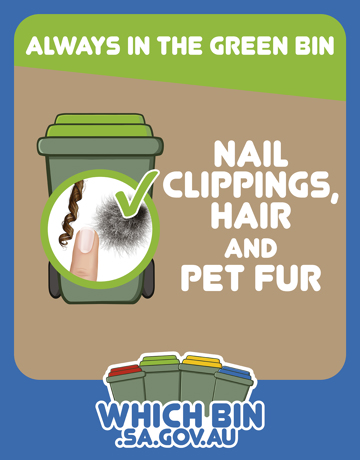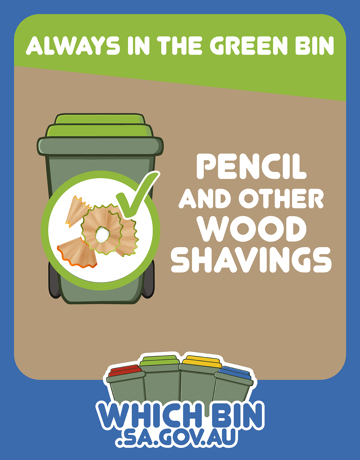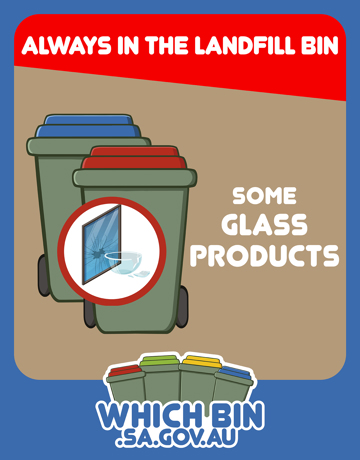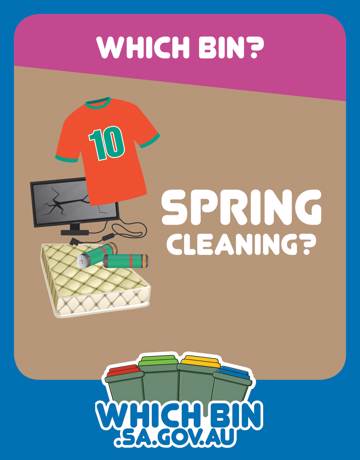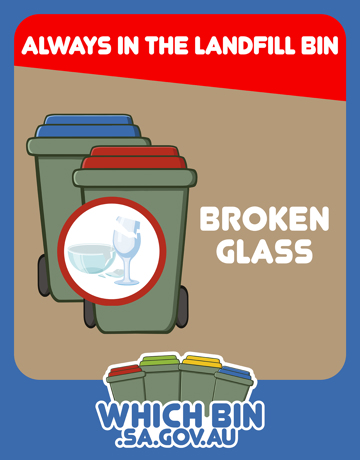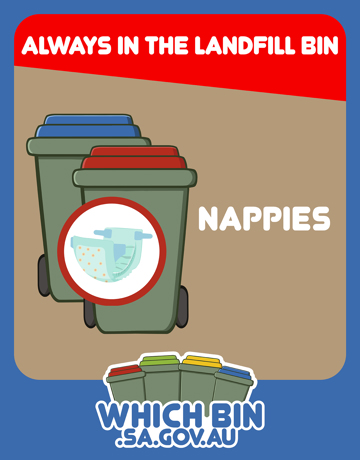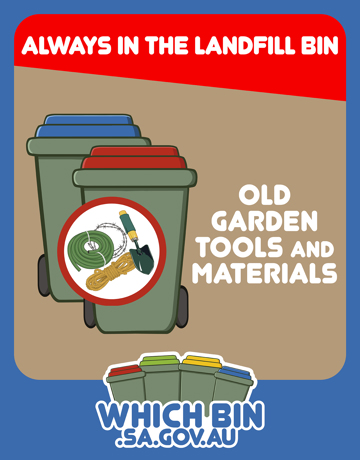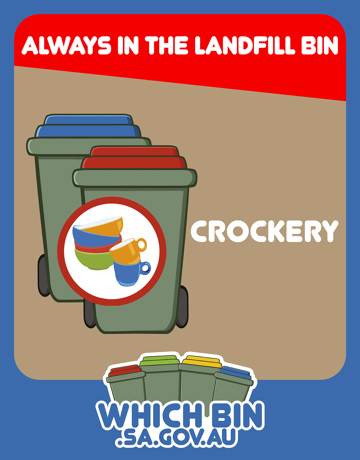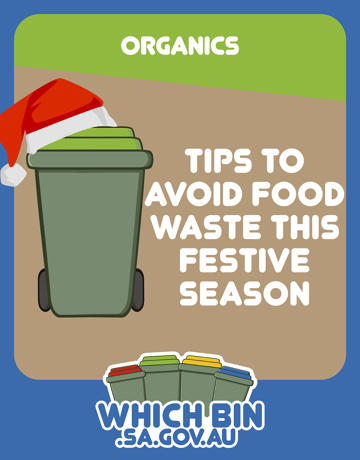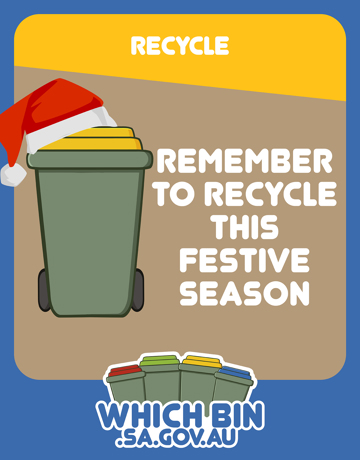Search for a tip:
Which Bin Tips
Need to know 'which bin' and more importantly, why? Our handy and simple tips will help you get the most out of your recycling efforts.
Sort by tip type:
Some tricky waste items can be recycled – just not through your yellow bin. Read on to find out where some of th...
Did you know that your food waste can be used to help South Australian farmers and growers to produce more food?...
Paper towel can be composted by placing it in your green organics bin.Paper towel is made from recycled, low-gra...
Electronic waste, like TVs, phones, computers and cables, can be recycled – just not through your yellow bin.If ...
All food scraps, including citrus, onion, dairy, meat, bones, fish, fruit and vegetables, need to be recycled th...
Household chemicals and paint don’t belong in any of your kerbside bins. If you have leftover products that...
Once collected from the kerbside, your yellow bin materials are taken to a Materials Recovery Facility (MRF), wh...
Expanded polystyrene (EPS), also known as Styrofoam, is used to produce items like meat trays and foam packaging...
Aluminium foil can be recycled by scrunching it up into a ball the size of a tennis ball and placing it into you...
It's a common misconception that putting your food and organic waste in your landfill bin is no different from p...
Shredded paper, sticky notes and other small pieces of paper can go in your green bin.Paper provides a great sou...
Batteries are hazardous and can produce sparks that may start a fire in collection trucks or at the MRF.Batterie...
All food scraps, tissues, paper towel, shredded paper, and more can be composted through your green bin.If you’r...
Anything that grows in your garden can go in your green bin – that includes flowers, weeds, lawn clippings, leav...
Placing landfill and organic waste items in your yellow recycling bin can contaminate the valuable recycling mat...
Pet waste can in fact be composted through your green bin.You may say ‘ewww’ to pet poo, but rest assured the co...
Coffee grounds, tea bags and loose tea leaves can go into your green bin, or your home compost bin.Coffee ground...
Once collected from your kerbside, your food and garden organics are taken to a local composting facility. In So...
The numbers 1 to 7 found on plastics is not a recycling symbol, but rather a plastic or resin identification cod...
Use Vin’s handy lists for wanted ‘nice’ and unwanted ‘naughty’ bin choices over the festive season.NicePutting f...
1. Avoid and reduceThe best way to waste less is to avoid or reduce it from the get-go.Take some time to conside...
When placing items in your recycling bin, keep them loose and free of plastic bags.When a bag of recyclables arr...
Having a fire to keep you nice and toasty this winter? Ashes and charcoal can go into your green bin, but only o...
Cans, like the ones peas and corn come in, can be rinsed and placed in your recycling bin.To recycle the metal l...
Plastic food containers and bottles, like ice cream tubs, yoghurt pots, butter and margarine tubs, sauce bottles...
Plastic pots and trays that new seedlings and trees come in can be recycled by emptying out the soil, giving the...
CompostableCompostable bags are made of natural plant starch, and do not produce any toxic material. They break ...
Building materials, such as bricks, tiles, cement and wire, can't be recycled through your yellow-lidded recycli...
You can recycle light globes through the Backlight program by dropping them off at participating Mitre 10, True ...
Textiles, clothing and footwear can’t be recycled through your yellow or green bin. This includes items made fro...
Cardboard egg cartons can be composted through your green bin.Egg cartons are made from recycled, low-grade pape...
Pizza boxes – especially when they’re greasy and have cheese or other food stuck to them – are great in your gre...
Nail clippings and hair from both humans and pets can go in the green bin – following the general rule, ‘if it g...
Pencil and other wood shavings, like sawdust, can go in your green bin.If you have your own composting system se...
While whole glass bottles and jars can be placed in your yellow recycling bin, other glass products such as wind...
Looking to tidy things up around the house? Follow these easy tips to make the most of the materials you no long...
While whole, unbroken glass bottles and jars can be placed in your yellow recycling bin, any broken glass needs ...
Nappies, clean or dirty, must always be placed in your red/blue landfill bin.In South Australia, there are curre...
Old garden tools and other materials such as hoses, irrigation pipe, rope and strapping that can no longer be us...
Plastic Free July is a global movement that challenges participants to avoid using single-use plastics wher...
Ceramic plates, bowls, mugs, saucers, pots, and dishes made from earthenware or china must be placed in your red...
For many, the festive season is a time when we prepare and eat lots of delicious food, but the unfortunate real...
This festive season (and always), be mindful of what materials you’re throwing away – it’s likely a lot of ...



